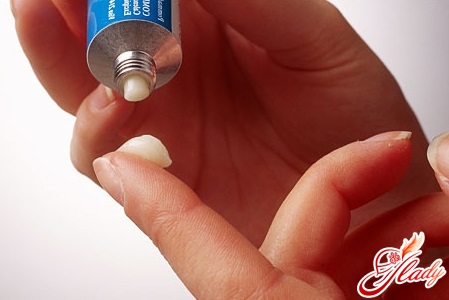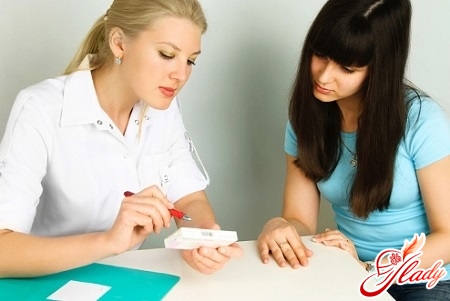 Everyone has heard the saying, “Don’t be born beautiful,born happy". I would like to add - and healthy. And a woman's health primarily depends on a favorable hormonal background. The entire hormonal background of a woman consists of four main hormones - progesterone, testosterone, estrogen and prolactin. If the content of one or another hormone increases or decreases, an imbalance of hormonal background occurs. It is hormonal imbalances in women that lead to the development of most diseases of the female reproductive system and negatively affect the psychological state of a woman. The consequences of hormonal imbalance, for example, are diseases such as obesity, polycystic ovary syndrome, excessive hair growth, menstrual irregularities, infertility, uterine fibroids and many others.
Everyone has heard the saying, “Don’t be born beautiful,born happy". I would like to add - and healthy. And a woman's health primarily depends on a favorable hormonal background. The entire hormonal background of a woman consists of four main hormones - progesterone, testosterone, estrogen and prolactin. If the content of one or another hormone increases or decreases, an imbalance of hormonal background occurs. It is hormonal imbalances in women that lead to the development of most diseases of the female reproductive system and negatively affect the psychological state of a woman. The consequences of hormonal imbalance, for example, are diseases such as obesity, polycystic ovary syndrome, excessive hair growth, menstrual irregularities, infertility, uterine fibroids and many others.
Causes of hormonal imbalance
Just a few decades ago, there was an imbalancehormonal background occurred quite rarely. The modern rhythm of life leads to the fact that an increasing number of women of all ages are faced with pathological changes in the hormonal background of their body, of varying degrees of severity. Factors that provoke hormonal imbalance can be:

Types of female hormones
How to determine hormonal imbalance?Hormonal disorders in women have very different symptoms, depending on which hormone is lacking. This is what we will talk about below.
- Estrogen
And we should start with the main female hormone –estrogen. Estrogen first makes itself known during puberty in girls – it is responsible for the growth and subsequent functioning of the uterus and mammary glands. In adult women, estrogen is responsible for the menstrual cycle, the condition of the uterine endometrium, the readiness of the genitals for conception, pregnancy and childbirth. In addition, estrogen affects the functioning of not only the female genitals, but also many other vital systems. Estrogen prevents the formation of cholesterol plaques on the walls of blood vessels, which lead to the development of atherosclerosis, regulates water-salt metabolism in the body, is responsible for the normal level of moisture in the skin and the functioning of the sebaceous glands. It is estrogen that is responsible for the sufficient content of calcium and phosphorus in the woman's body. With its deficiency, the development of osteoporosis is almost inevitable. In addition, low levels of this hormone lead to the development of diseases such as cervical erosion, obesity, breast tumors, vegetative disorders and depressive states.
- Progesterone
Progesterone is used by endocrinologiststhe unofficial name of the pregnancy hormone. It is this hormone that determines whether a woman can become a mother – it regulates the menstrual cycle and the process of conception and pregnancy. It is progesterone that is responsible for preparing the breasts for breastfeeding. A decrease in the progesterone hormone can lead to the development of various inflammatory processes in the uterine cavity, ovulation disorders, the occurrence of severe uterine bleeding and prolonged and painful menstruation. The cleanliness of the skin also largely depends on progesterone – if there is a deficiency, acne and even boils can appear on the skin. If pregnancy has occurred, and the level of progesterone in the body of the expectant mother is significantly reduced, spontaneous termination of pregnancy is possible – miscarriage. However, its too high content can also negatively affect the health of a woman, leading to the development of renal failure, disruption of the normal menstrual cycle and the formation of a corpus luteum cyst.
- Testosterone
Many ordinary people believe that testosteroneexclusively male hormone. However, it also plays an important role in the female body. Firstly, testosterone is responsible for a woman's sexual desire. Secondly, low testosterone levels in the female body can lead to the development of the same kidney failure, malfunction of the sweat and sebaceous glands, as well as to a malfunction of the menstrual cycle. However, excess testosterone also has an extremely negative effect on the functioning of the female body. For example, often as a result of excess progesterone, a woman can develop tumors. As a rule, one can suspect an increased level of progesterone by the woman's appearance and voice: her voice is quite low, and hair growth occurs according to the male type.
- Prolactin
Prolactin also plays a direct roleparticipation in the water-salt metabolism of the body. But its main task is responsibility for the growth and development of the mammary glands in a teenage girl, as well as for the production of milk in a nursing woman. If there is not enough prolactin in the body, underdevelopment of the mammary glands is possible, a decrease in the amount of milk produced during breastfeeding of a child, and a failure of the menstrual cycle is also possible. In order for prolactin to be produced in sufficient quantities, especially in nursing mothers, proper nutrition, optimal physical activity, adequate rest and sleep are necessary. With a reduced content of prolactin in the body, a rather serious hormonal failure occurs.
Diagnosis and treatment of hormonal disorders
In order to detect the presence in the bodywomen with hormonal imbalance, it is necessary to seek help from a doctor - an endocrinologist. The doctor will examine the woman and send her for blood tests. This is how hormonal imbalances in a woman's body are detected. Blood must be donated several times, on different days of the menstrual cycle. Thus, it will become clear which hormones are lacking or produced in excess. After this, the woman will undergo a series of the following examinations to establish the causes of hormonal imbalance:
- Ultrasound examination of the main organs and systems of the body.
- Computer tomography of the brain.
- Laparoscopy and hysteroscopy.
- Investigation of the fundus.
As a rule, diagnosis of hormonal disordersdoes not provide much work for doctors. In most cases, to restore the hormonal balance in the body, it is necessary to eliminate its root cause. In addition, a woman must undergo the necessary course of hormonal therapy - taking special hormonal drugs. In some cases, there is a need for constant maintenance hormonal therapy. However, this happens quite rarely. Such drugs are selected by a doctor - an endocrinologist strictly individually in each specific case - universal treatment regimens simply do not exist. The doctor calculates the dosage of hormonal drugs, taking into account the weight of the sick woman, her age, the level of a particular hormone in the blood, the characteristics of her general health and much more. Adequate treatment very quickly brings noticeable improvement - hormonal disorders disappear, the work of the woman's reproductive system is fully restored. And an incorrectly selected treatment regimen can not only fail to improve the state of a woman's hormonal background, but also lead to irreparable pathological changes. That is why self-medication is in no case allowed. You should not play Russian roulette with your own health. According to the law of probability theory, you will still lose one day. We recommend reading:









